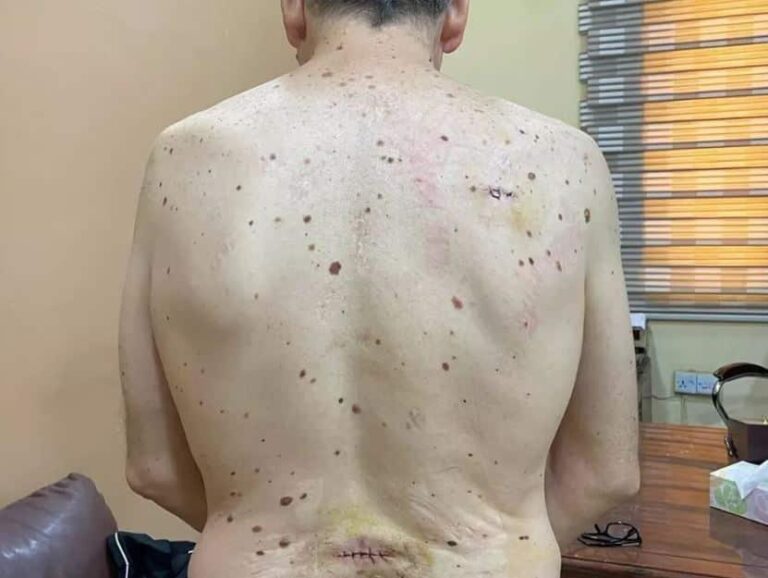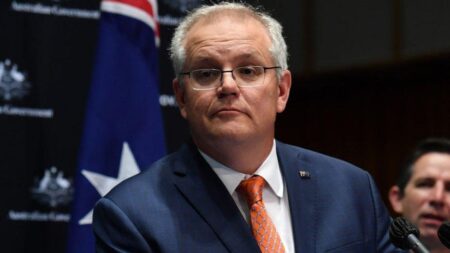Australian national Robert Pether, who was detained in Iraq on charges related to his activities in the region, has been granted conditional release after his imprisonment. The development marks a significant turn in a case that drew international attention and raised concerns over diplomatic efforts and the treatment of foreign detainees in Iraq. This article examines the circumstances surrounding Pether’s detention, the terms of his conditional release, and the implications for Australian-Iraqi relations.
Robert Pether’s Conditional Release Signals Shift in Diplomatic Negotiations
Robert Pether’s conditional release marks a noteworthy development in the complex diplomatic landscape between Australia and Iraq. The decision to grant his release under specific terms reflects increasing willingness from both sides to engage in dialogue and reassess past tensions. Pether, who had been detained on politicized charges, is now subject to stringent monitoring agreements that hint at an emerging framework for future cooperation and conflict resolution.
Key elements surrounding Pether’s conditional release include:
- Specific restrictions: Curfews and reporting requirements aimed at ensuring compliance.
- Diplomatic leverage: Australia’s active involvement in negotiating terms underlines the strategic value of this case.
- Signal to stakeholders: Opens pathways for broader negotiations on legal and humanitarian issues.
| Aspect | Details |
|---|---|
| Release Conditions | Regular check-ins, movement restrictions |
| Diplomatic Impact | Improved bilateral communication |
| Future Outlook | Possibility of further prisoner reviews |
Analyzing the Legal and Humanitarian Implications of Detention in Iraq
The recent conditional release of Australian Robert Pether from Iraqi detention highlights pressing concerns surrounding the legal frameworks and humanitarian conditions in Iraq’s justice system. Although Pether’s release marks a positive development, it raises questions about due process, as detainees often face prolonged confinement without transparent judicial proceedings. International legal standards mandate fair trials and timely access to legal representation, yet numerous reports indicate these safeguards are inconsistently applied within the Iraqi penal institutions.
From a humanitarian perspective, detainees in Iraq frequently endure challenging conditions that exacerbate physical and psychological distress. Overcrowding, insufficient medical care, and limited communication with family complicate efforts to ensure basic human rights. Observers emphasize that reform is essential not only to align with international law but to prevent further human suffering. Key issues include:
- Access to independent legal counsel
- Prisoner rights to health and hygiene
- Transparency in detention duration and charges
- Regular monitoring by international bodies
| Aspect | Current Status | Recommended Improvement |
|---|---|---|
| Legal Representation | Delayed / Limited | Immediate, guaranteed access |
| Medical Care | Insufficient | Regular health evaluations |
| Detention Transparency | Opaque | Clear timelines & updates |
Recommendations for Strengthening Support Systems for Australians Abroad in Crisis
In situations like Robert Pether’s conditional release from detention in Iraq, it becomes imperative to reassess and strengthen the mechanisms that Australia’s government and consular services employ to assist citizens facing crises abroad. Proactive measures could include enhanced real-time communication channels between detainees, their families, and diplomatic missions, ensuring timely updates and psychological support are accessible. Additionally, establishing a centralized crisis response team dedicated solely to Australians in foreign detainment scenarios would bridge gaps in coordination, expediting legal aid and advocacy efforts.
Beyond governmental action, boosting community and grassroots support networks abroad can create a safety net for individuals caught in uncertain environments. Recommendations comprise:
- Local volunteer groups trained to assist Australians in distress with immediate practical needs.
- Collaboration with international NGOs specializing in human rights and legal assistance.
- Improved educational campaigns informing travelers about risks and support protocols before departure.
| Area of Improvement | Proposed Action | Expected Outcome |
|---|---|---|
| Communication Systems | 24/7 Hotline with Multilingual Staff | Faster crisis response and clearer guidance |
| Legal Aid | Partnerships with International Law Firms | Access to skilled representation abroad |
| Pre-Travel Briefings | Mandatory Risk Awareness Programs | Reduced vulnerability in high-risk regions |
Final Thoughts
Robert Pether’s conditional release marks a significant development in a complex case that has drawn international attention. As he navigates the terms of his release, questions remain about the broader implications for Australians detained abroad. Authorities continue to monitor the situation closely, underscoring the ongoing challenges faced by citizens caught in foreign legal systems. Further updates are expected as the story unfolds.




